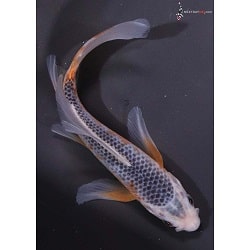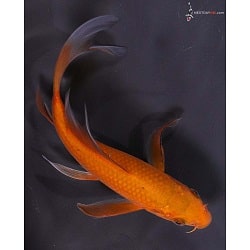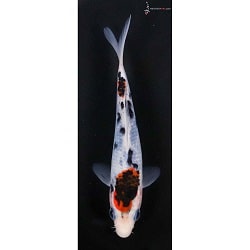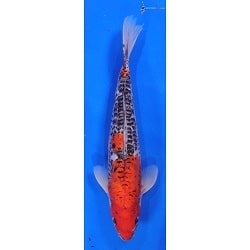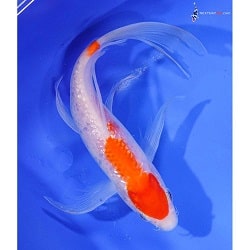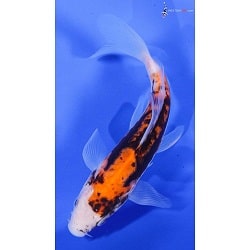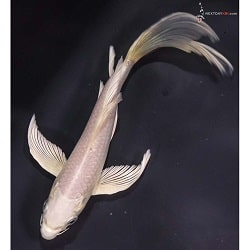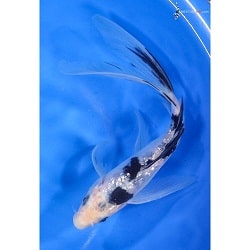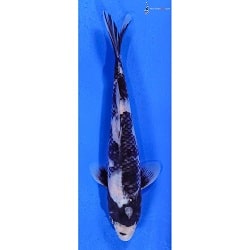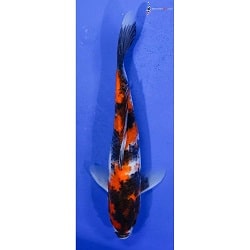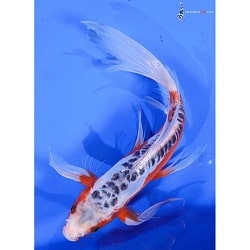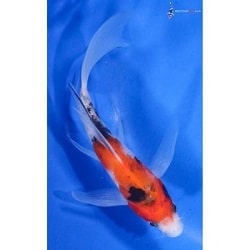12 Most Popular Types of Koi Fish (With Pictures)
Koi fish also referred to as Nishikigoi, are one of the most common pond fish found worldwide.
There are over 100 types of koi fish in many different colors, shapes, and sizes.
But, a dozen or so koi types have become quite popular over the years, each type displaying a different color, pattern, and various features that distinguish it from other types of koi fish.
So, let's look at the 12 most popular types of koi fish, how to distinguish them from other varieties of koi, and much more!
Important Koi Fish Characteristics
Before we look at specific koi breeds, let me quickly explain what distinguishes one type of koi from another. This will help us later when we identify and describe the most popular types of koi below.
While features like scalation and fin length can help determine a koi's heritage, the two most important characteristics of any koi, and the best indicators of its breed and quality, are its color and scale pattern.
1. Koi Coloration
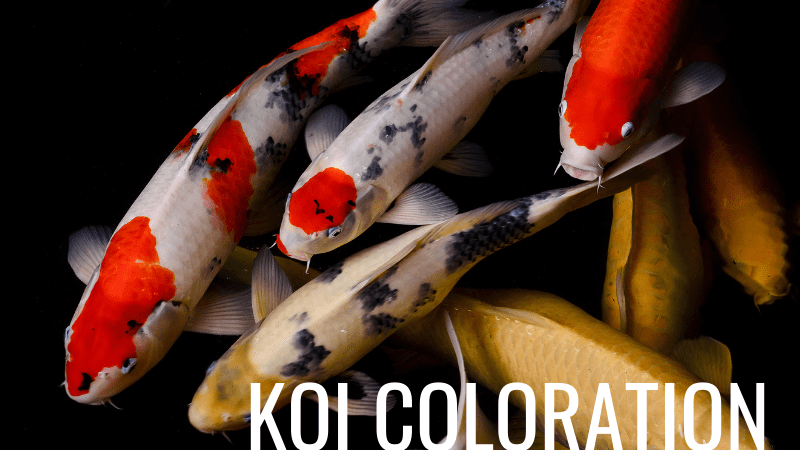
Our first impression of any koi usually comes as a blur of color in the water. Color is the most prized attribute of many koi species, and it is typically the first thing we consider when trying to tell one type of koi from another. We could write an entire book about koi colors, but here we'll cover the basics.
Most koi varieties feature some combination of three colors: Shiro (white), Sumi (black), and Hi (red). Some breeds build on this basic palette, including Ki (yellow) and less-traditional blue, orange, silver, and other hues.
Most koi are tri-colored, though as we will see, some elaborate patterns or markings can be drawn from just three colors. Muji, meaning single-colored, koi are not uncommon, and some of these display Ogon, or metallic, coloration.
Tancho Pattern
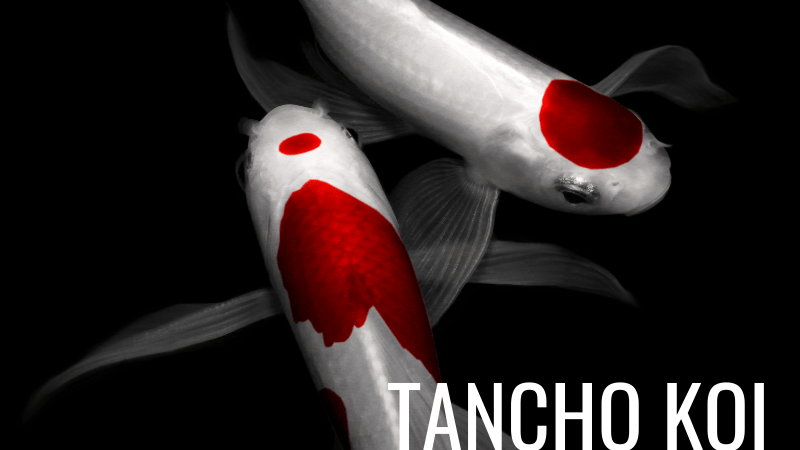
A koi with a single red spot on its head means that it's a Tancho Koi, a name derived from the Tancho crane, which has a similar pattern on its head. The red dot echoes the Japanese flag, making Tancho an incredibly prized pattern among some koi hobbyists. Kohaku, Showa, and Sanke koi can display Tancho coloration.
Maruten Pattern
When the red dot associated with Tancho is accompanied by others, they may form a crown pattern on the koi's head. This pattern is called Maruten.
2. Koi Scale Patterns
The pattern, and even the presence, of a koi's scales can contribute significantly to its appearance. Here are some striking but still somewhat common examples of the diversity of koi scalation.
- Gin Rin: When koi have at least three rows of reflective scales, they qualify as Gin Rin.
- Matsuba: Black pigment in the middle of each scale creates a highly textured Matsuba, or pine cone, pattern. Aside from Gin Rin, this is one of the most popular koi scale patterns.
Doitsu (Scaleless Patterns)
Doitsu is a range of largely scaleless patterns. Doitsu koi typically feature two lines of enlarged scales along their dorsal fin and on their lateral line. Several patterns are recognized as Doitsu.
- The Kagami Goi, or mirror pattern, features two continuous rows of scales running from head to tail along the dorsal and ventral lines.
- The Yoroi Goi, or armor pattern, is distinguished by a random distribution of irregularly sized scales. Symmetrical distribution is especially prized.
- The Kawi Goi, or leather pattern, refers to koi that are entirely scaleless or have a single row of small, symmetrical, and uniformly sized scales alongside the dorsal fin.
3. Fin Length & Shape
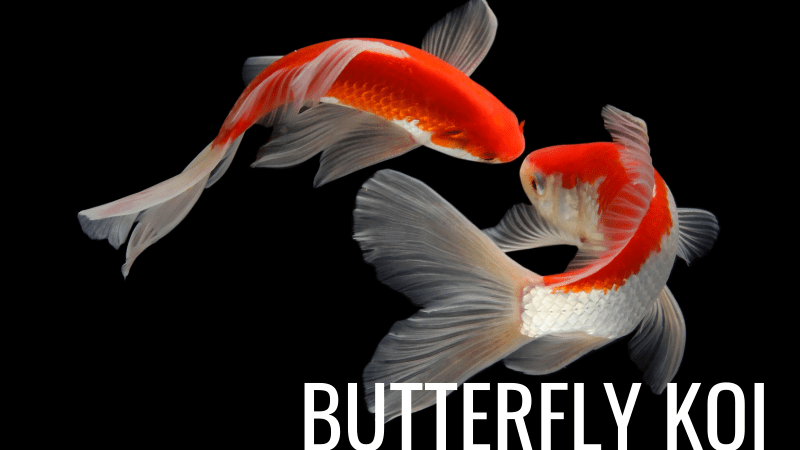
There's actually a third characterisitic that can often hlp identify the specific type of koi - fin length and shape.
Long-finned koi (Hirenaga), popularly known in the West as Butterfly Koi or Dragon Fin Koi, are actually crosses between standard koi and long-finned carp. Their beautiful, elongated fins blur the lines between swimming and flying. More notable butterfly koi types include Kohaku butterfly koi, Sanke butterfly koi, and Showa butterfly koi.
Get Our Best Pond Tips Sent to Your Inbox for Free!
Join thousands of others and learn from our decades of pond building and maintenance experience! Your pond will thank you!
By subscribing you agree to receive emails from PondAcademy.com. We will always respect your privacy and you can unsubscribe at any time.
Most Popular Koi Types
Now that we know some of the more important characteristics of koi (and the language used to define those characteristics) let's use that to help identify twelve of the most popular types of koi.
Many of these varieties are related, and koi with common ancestors and characteristics are often grouped into families.
1. Asagi Koi
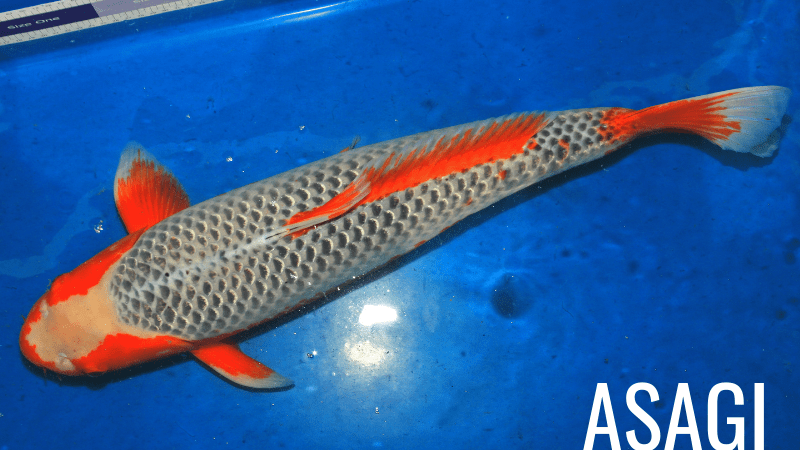
Asagi is an ancient variety of koi and serves as the basis for many subsequent koi breeds. It is distinguished by a delicate blue-and-white net pattern along the dorsal side, with touches of red on the belly, tail, gill plates, and pectoral fin.
2. Chagoi Koi
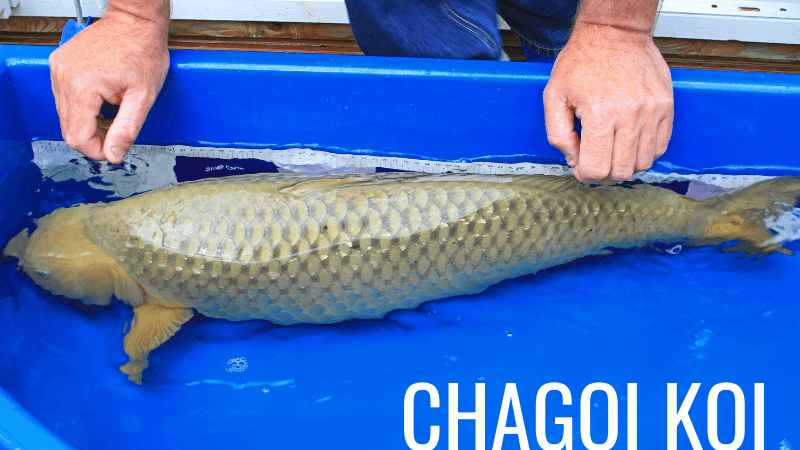
Chagoi are more closely related to carp than most varieties of koi, and both their size (up to 30 inches) and their coloration speak to koi's ancestral past.
They typically display muted, earthy colors ranging from light to dark brown or deep copper hues.
Chagoi are an example of Kawarimono Koi, a catch-all for varieties that do not fit easily into more established koi families.
3. Goromo Koi
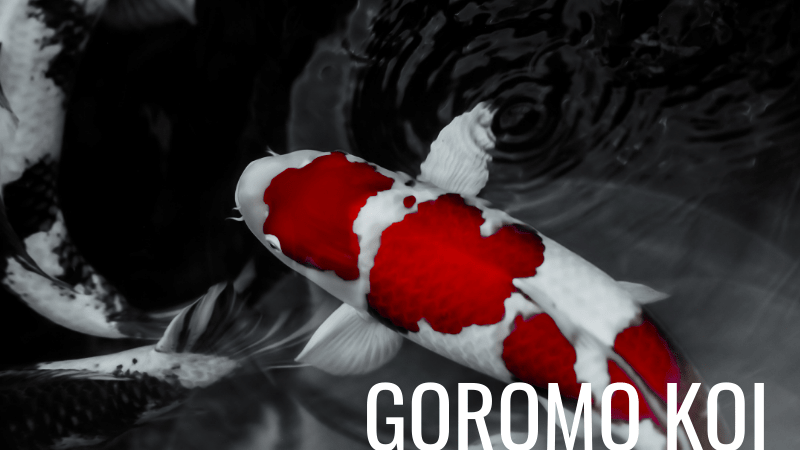
Goromo Koi are essentially Kohaku Koi with an important elaboration: each red scale forming their patterns is edged in blue, creating a distinctive visual texture.
American koi enthusiasts tend to call this variety Goromo, but it is more commonly known as Koromo in other countries.
4. Goshiki Koi
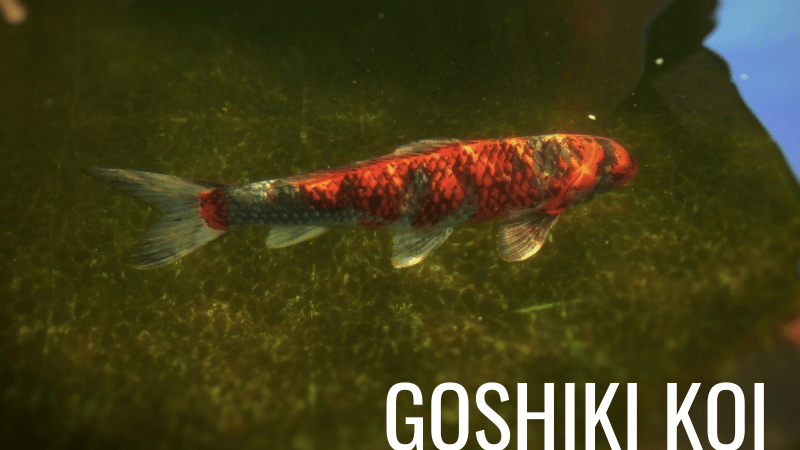
On the other side of the spectrum, Goshiki, or five-colors, koi present an often elaborate mix of hues. All Goshiki feature a solid white body with scales edged in black and blue, overlaid with patterns in red. The colorful Goshiki were first produced when blue-and-white Asagi were crossed with Sanke Koi.
5. Kohaku Koi
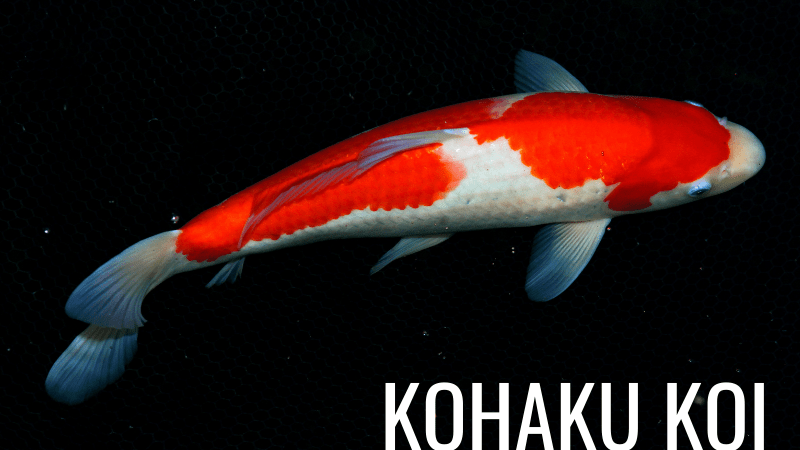
Kohaku joins Asagi as one of the oldest varieties of koi and maybe the most popular throughout the world. These koi, members of the Gosanke family, feature red patterns over an all-white body.
![]() Did you know...
Did you know...
A Kohaku Koi sold in China is the most expensive Koi in the world, which was sold for around $2.2 million. Looking for a more affordable koi? Check out our guide to koi fish prices, which explains why some koi are more expensive than others and the best places to buy them.
6. Kumonryu Koi
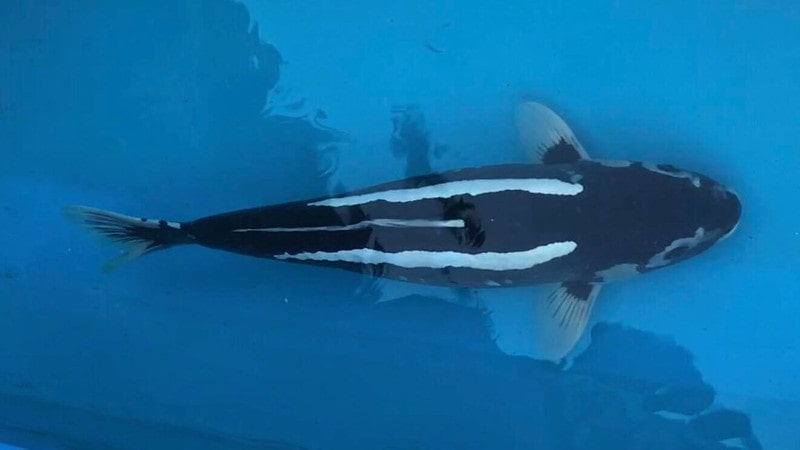
The result of breeding Shusui Koi with Matsukawabakke, a nonmetallic black-and-white variety, Kumonryu is a remarkable breed of koi.
Its scaleless body features a white base and black patterns, occasionally featuring hints of blue. Like their Matsukawabakke ancestors, Kumonryu Koi can change their coloration in response to changes in their environment. This mutability, combined with their graceful appearance, inspired Kumonruy's name: literally Nine-Crested Dragon.
7. Ogon Koi
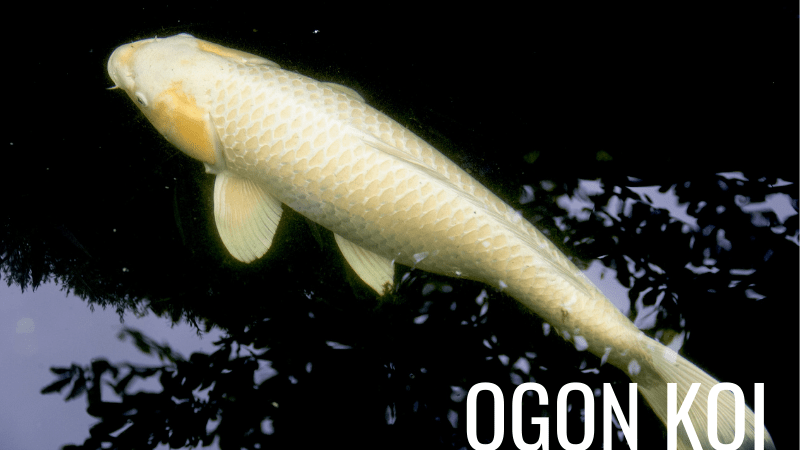
Ogon, or golden, koi are members of the Hikarimuji family that feature single metallic coloration. More generally, they lend their name to any solid/metallic-colored koi. Ogon are especially valued for their striking contrast with more intricately colored koi, making them popular with newcomers and veteran koi pond enthusiasts alike.
![]() Did you know...
Did you know...
Platinum ogon, a metallic, all-white koi, is one of the most sought-after koi fish by hobbyists.
8. Shiro Bekko Koi
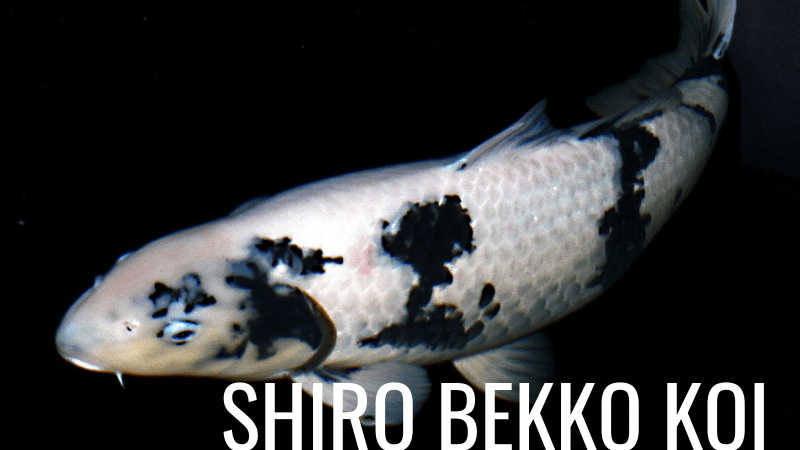
Bekko is a popular family of koi, and Shiro Bekko are its most popular members. These predominantly white koi display patterns in black along the lateral line, with little to no additional coloration on the koi's bottom half.
9. Shiro Utsuri Koi
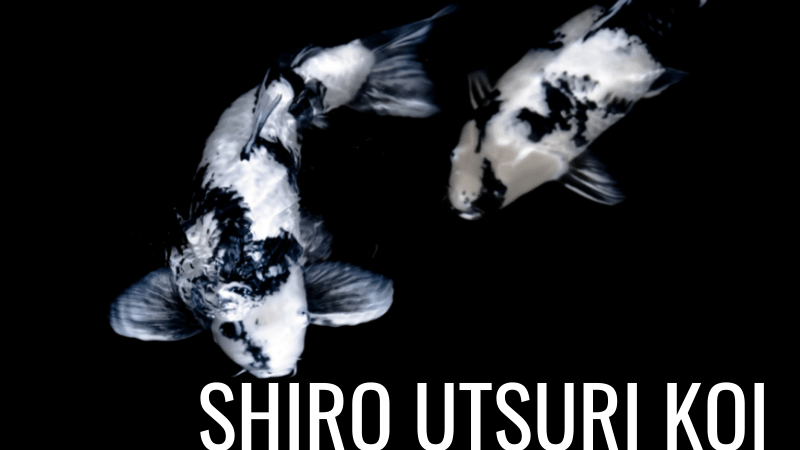
The most popular member of the Utsurimono family, Shiro Utsuri Koi, feature a stark and dramatic contrast of white patterns overlaying a black body. The base color of some Utsurimono is not perfectly consistent across the belly, but the black area should wrap entirely around the body.
![]() Did you know...
Did you know...
Ki Utsuri, a koi type in the same family as Shiro Utsuri, is one of the rarest types of koi. It features a black body and areas of yellow pattern overlaying the black.
10. Showa Koi
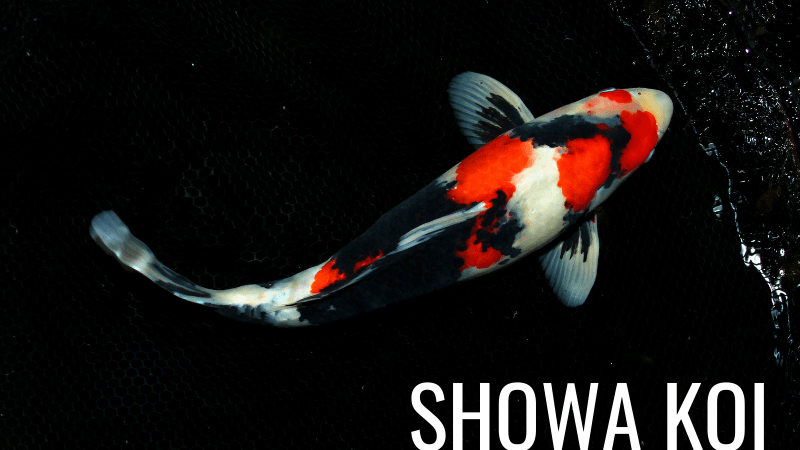
Showa Koi feature an all-black body overlaid with patterns in red and white. This koi variety debuted in the 1920s when breeders crossed Kohaku with Ki Utsuri Koi. Early styles of Showa tended to feature a muted color palette, while later variations have been bred to be more vividly colored.
11. Shusui Koi
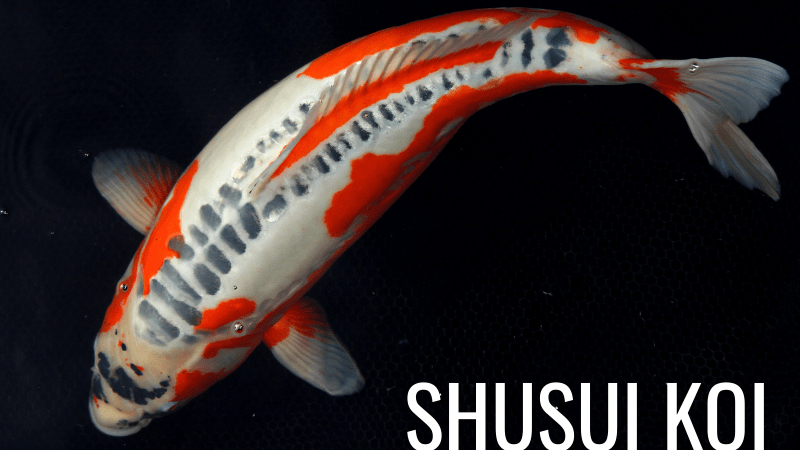
Shusui is the Kawi Goi or scaleless version of Asagi Koi. In place of the net-like pattern of the Asagi's scales, Shusui Koi feature light-blue skin with a row of small scales along the dorsal line. Red accents may appear, just as they do on the Asaigi, but these may continue above the lateral line.
12. Taisho Sanke Koi
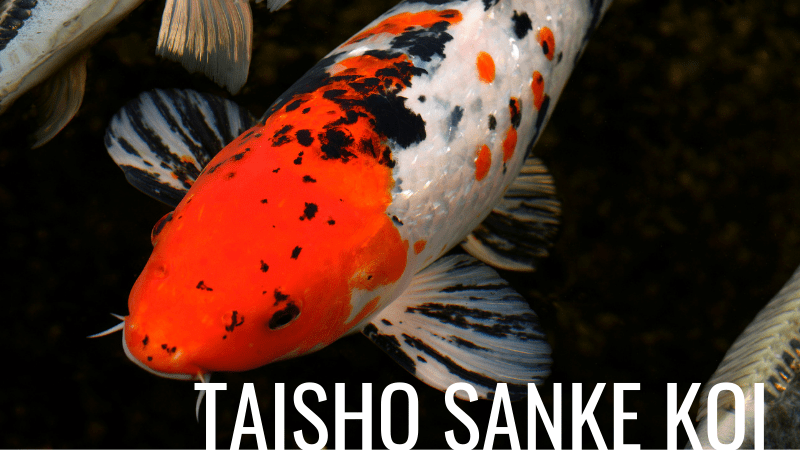
Taisho Sanke, or simply Sanke Koi, as they are commonly known, add patterns of black to the red patterns and white bodies associated with Kohaku Koi. Sanke koi are a member of the Gosanke Family.
![]() Did you know...
Did you know...
The Gosanke family includes 3 main varieties of koi: Kohaku, Taisho Sanke, and Showa koi. Though there are more than 100 distinct koi fish types, these three varieties stand out from the rest for their beauty, perfection, and popularity.


